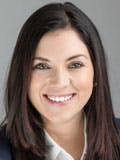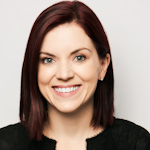I remember looking at my student loans and feeling as though I would never pay them off. I went to a private school that averaged $35,000 per semester. Although I had scholarships, it was still extremely overwhelming as an unemployed student to think of paying off over $100,000 of loans. I started to investigate resources to help me pay off my loans, which were completely paid off two and a half years after graduation. Paying off my loans in this time frame took sacrifice, working additional hygiene hours, and budgeting, but it was worth it!
Budgeting: Mint.com
Mint.com is my favorite budgeting tool on the planet! The software lets you create a monthly budget and allows you to connect all your loans, assets, bank accounts, and credit cards to one site to help keep you organized. The software alerts you when you are close to going over your budget and when you go over your budget. It uses a color-coding system that encourages you to stay “green,” or on budget. Every transaction that you make is recorded through the software to allow you to understand exactly where your money is going. Realizing you’ve spent $60 a month on Starbucks is eye-opening! For those of you who are nervous about putting your information online, it is secure and uses the credit card or bank’s website to prevent hacking.
Financial advice: Dave Ramsey
Dave Ramsey is a financial expert who offers in-person and online programs called Financial Peace University. This course helps empower people of all ages to get out of debt. He teaches how to change our mindset on debt and how to make small sacrifices when we are younger to live better later. For example, he teaches the snowball effect, which talks about paying off the smallest student loan first to help build our credit scores. Additionally, he teaches about 401(k)s, disability insurance, renter’s insurance, and many more financial well-being topics of which we are often unaware.
Investing: Vanguard
Investing is an important step of financial well-being, especially before age 30, as compound interest will increase the total investment earned. I started investing with Vanguard.com with a 401(k). I did this in addition to the 401(k) that my office provided and matched. Keep in mind, if the office offers a retirement plan, make sure you are maximizing their matching amount. For example, if an office matches 6% up to $5,000, aim to contribute $5,000. This will help to increase the investment down the road.
As dental hygienists, we can make a great salary to live on. It is important that we know how to manage the income in the beginning of our careers to allow us to have financial income in the future. Invest in yourself today through the resources discussed above. You won’t regret it!
Amber Auger, RDH, MPH, is a hygienist with experience in multiple clinical settings, including facilities abroad. Amber obtained a master’s degree in public health from the University of New England and a bachelor’s in dental hygiene from the University of New Haven. She holds a part-time position at an elite dental office in Boston. Amber Auger is a key opinion leader for several dental companies, speaker and published author, and can be contacted at amberaugerrdh.com.








